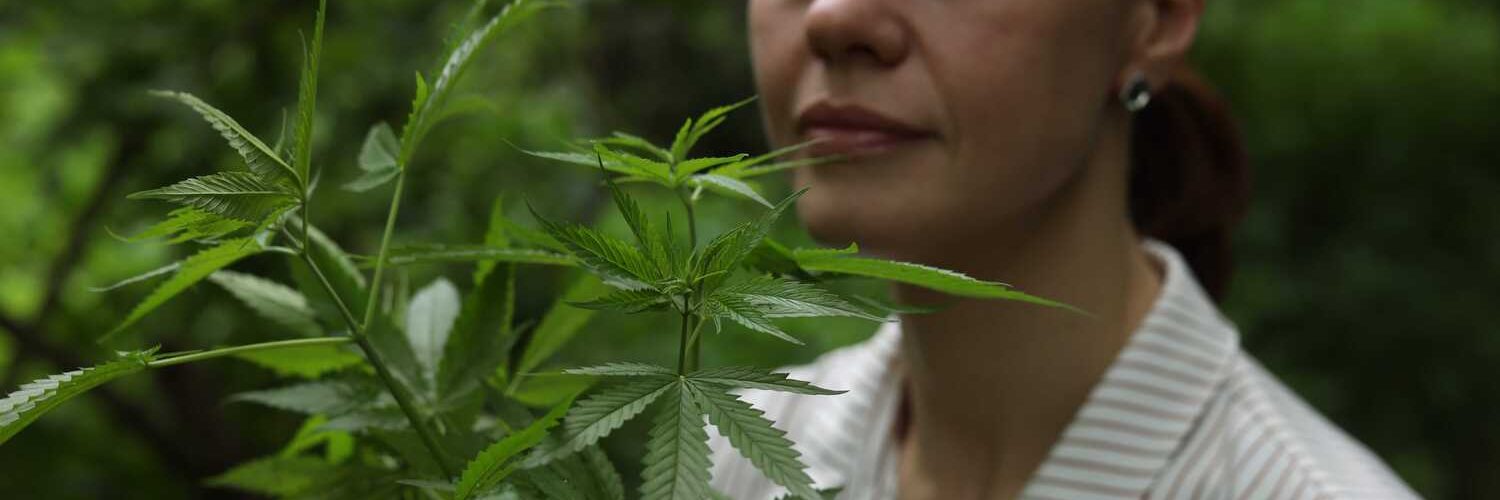Medical Marijuana For Cachexia
- Jake Peter
- Published: September 13, 2023
- Fact-checked by Dr. Desiree Granados

Cachexia, often known as “wasting syndrome,” is a serious side effect of numerous chronic illnesses such as cancer, HIV/AIDS, and heart failure. It is characterized by significant weight loss, muscle atrophy, fatigue, weakness, and loss of appetite. For patients battling cachexia, maintaining adequate nutritional status often becomes a daunting challenge.
In recent years, medical marijuana has emerged as a potential treatment option for relieving symptoms and improving quality of life in cachexia patients.
What is Cachexia and What Causes It?
Cachexia is a complex metabolic syndrome associated with underlying illness and characterized by loss of muscle with or without loss of fat mass. It’s commonly observed in patients with cancer, chronic kidney disease, and other severe chronic diseases. The prominent clinical feature is weight loss in adults, often accompanied by decreased appetite, inflammation, insulin resistance, and increased protein breakdown.
The exact cause of cachexia is not entirely understood and is likely multifactorial. It’s often thought to be directly related to the effect of the underlying disease, which may cause a decrease in nutrient intake or abnormal metabolism, contributing to weight loss and muscle wasting.
Benefits of Medical Cannabis for Cachexia Patients
Medical cannabis has shown promising results in managing cachexia. Its medicinal properties may help alleviate symptoms and improve the quality of life in cachexia patients in several ways.
Firstly, cannabis is known for its appetite-stimulating properties. It can help patients struggling with reduced appetite, facilitating proper nutritional intake and potentially arresting or even reversing weight loss.
Secondly, cannabis can act as an effective antiemetic, reducing nausea and vomiting often associated with conditions causing cachexia and the treatments for them. This can further help improve a patient’s appetite and overall health.
Lastly, cannabis is also recognized for its pain-relieving properties. By reducing the discomfort and pain that often accompany cachexia, it can foster a better quality of life for patients.
Cachexia Symptoms
Cachexia presents a range of symptoms. Weight loss, especially muscle wasting, is a key characteristic of this condition, often accompanied by a significant reduction in overall body strength. Patients may also experience decreased appetite, fatigue, and a lowered resistance to infections due to a weakened immune system.
It’s worth noting that cachexia is more than just a loss of weight–it involves a shift in the body’s metabolism and immune response, leading to a decline in the patient’s physical and functional capabilities. These symptoms collectively contribute to a diminished quality of life and a poor prognosis.

Can Medical Marijuana Treat Cachexia?
Medical marijuana is increasingly being considered as a potential treatment for cachexia. Studies suggest that cannabinoids in marijuana may stimulate appetite and improve food intake, potentially facilitating weight gain and muscle growth in cachexia patients.
However, further research is needed to fully understand the efficacy and safety of medical marijuana in treating cachexia and its related symptoms.
Medical Marijuana Side Effects
While medical marijuana has been found to be beneficial for patients with cachexia, it does come with potential side effects. Some users may experience psychological effects such as changes in mood, feelings of anxiety, or hallucinations. Physically, there could be dizziness, impaired memory, and issues with balance and coordination.
Furthermore, some patients may develop a dependency on the drug, and smoking it can lead to respiratory issues. These side effects may vary in severity and frequency among different individuals, and it is recommended that patients discuss any concerns with their healthcare provider.
Conclusion
While cachexia poses a serious challenge to patients undergoing treatment for chronic illnesses, the use of medical marijuana presents a promising solution. Its ability to stimulate appetite, alleviate nausea, and provide pain relief can significantly enhance patients’ quality of life. Although more research is required to fully understand the implications and efficacy of medical marijuana in treating cachexia, preliminary findings are encouraging.
As with any treatment, it’s essential for patients to discuss the potential benefits and side effects with their healthcare provider before starting a medical marijuana regimen.
States Where We Offer Medical Marijuana Card Services
How we reviewed this article:
- The Effect of Cannabis-Based Medicine in the Treatment of Cachexia: A Systematic Review and Meta-Analysis https://pubmed.ncbi.nlm.nih.gov/34664988/
- The Effects of Dosage-Controlled Cannabis Capsules on Cancer-Related Cachexia and Anorexia Syndrome in Advanced Cancer Patients: Pilot Study https://journals.sagepub.com/doi/10.1177/1534735419881498
Current Version
September 13, 2023
Written By
Jake Peter
Fact-checked By
Dr. Desiree Granados
Editorial Process
Our Editorial Process
Other Posts About Medical Marijuana Treatment

Jake Peter received his journalism degree from Emerson College and has been writing content for the Sanctuary Wellness Institute since 2021. He is passionate about all things cannabis.







